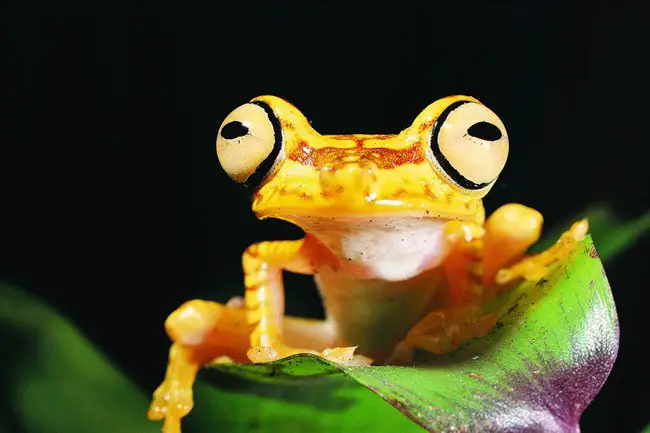
By Paul R. Ehrlich and Anne H. Ehrlich
There is no doubt that Earth is undergoing the sixth mass extinction in its history – the first since the cataclysm that wiped out the dinosaurs some 65 million years ago. According to one recent study, species are going extinct between ten and several thousand times faster than they did during stable periods in the planet’s history, and populations within species are vanishing hundreds or thousands of times faster than that. By one estimate, Earth has lost half of its wildlife during the past 40 years. There is also no doubt about the cause: We are it.
We are in the process of killing off our only known companions in the universe, many of them beautiful and all of them intricate and interesting. This is a tragedy, even for those who may not care about the loss of wildlife. The species that are so rapidly disappearing provide human beings with indispensable ecosystem services: regulating the climate, maintaining soil fertility, pollinating crops and defending them from pests, filtering fresh water, and supplying food.
The cause of this great acceleration in the loss of the planet’s biodiversity is clear: rapidly expanding human activity, driven by worsening overpopulation and increasing per capita consumption. We are destroying habitats to make way for farms, pastures, roads, and cities. Our pollution is disrupting the climate and poisoning the land, water, and air. We are transporting invasive organisms around the globe and overharvesting commercially or nutritionally valuable plants and animals.
The more people there are, the more of Earth’s productive resources must be mobilized to support them. More people means more wild land must be put under the plow or converted to urban infrastructure to support sprawling cities like Manila, Chengdu, New Delhi, and San Jose. More people means greater demand for fossil fuels, which means more greenhouse gases flowing into the atmosphere, perhaps the single greatest extinction threat of all. Meanwhile, more of Canada needs to be destroyed to extract low-grade petroleum from oil sands and more of the United States needs to be fracked.
More people also means the production of more computers and more mobile phones, along with more mining operations for the rare earths needed to make them. It means more pesticides, detergents, antibiotics, glues, lubricants, preservatives, and plastics, many of which contain compounds that mimic mammalian hormones. Indeed, it means more microscopic plastic particles in the biosphere – particles that may be toxic or accumulate toxins on their surfaces. As a result, all living things – us included – have been plunged into a sickening poisonous stew, with organisms that are unable to adapt pushed further toward extinction.
With each new person, the problem gets worse. Since human beings are intelligent, they tend to use the most accessible resources first. They settle the richest, most productive land, drink the nearest, cleanest water, and tap the easiest-to-reach energy sources.
And so as new people arrive, food is produced on less fertile, more fragile land. Water is transported further or purified. Energy is produced from more marginal sources. In short, each new person joining the global population disproportionately adds more stress to the planet and its systems, causing more environmental damage and driving more species to extinction than members of earlier generations.
To see this phenomenon at work, consider the oil industry. When the first well was drilled in Pennsylvania in 1859, it penetrated less than 70 feet into the soil before hitting oil. By comparison, the well drilled by Deepwater Horizon, which famously blew up in the Gulf of Mexico in 2010, began a mile beneath the water’s surface and drilled a few miles into the rock before finding oil. This required a huge amount of energy, and when the well blew, it was far harder to contain, causing large-scale, ongoing damage to the biodiversity of the Gulf and the adjacent shorelines, as well as to numerous local economies.
The situation can be summarized simply. The world’s expanding human population is in competition with the populations of most other animals (exceptions include rats, cattle, cats, dogs, and cockroaches). Through the expansion of agriculture, we are now appropriating roughly half of the energy from the sun used to produce food for all animals – and our needs are only growing.
With the world’s most dominant animal – us – taking half the cake, it is little wonder that the millions of species left fighting over the other half have begun to disappear rapidly. This is not just a moral tragedy; it is an existential threat. Mass extinctions will deprive us of many of the ecosystem services on which our civilization depends. Our population bomb has already claimed its first casualties. They will not be the last.
![]()

 Paul R. Ehrlich, author of the 1968 book, “The Population Bomb,” is the Bing Professor of Population Studies in the department of Biological Sciences at Stanford University and president of Stanford’s Center for Conservation Biology. Anne H. Ehrlich is the associate director and policy coordinator of the Center for Conservation Biology, Stanford University. (© Project Syndicate)
Paul R. Ehrlich, author of the 1968 book, “The Population Bomb,” is the Bing Professor of Population Studies in the department of Biological Sciences at Stanford University and president of Stanford’s Center for Conservation Biology. Anne H. Ehrlich is the associate director and policy coordinator of the Center for Conservation Biology, Stanford University. (© Project Syndicate)





























Havana Woody says
So What Do we Do ? We balk at SSM and continuously prevent natural selection from doing its job. Will we wait till it’s too late to control the population, or is it already to lat?.
Geezer says
[Selected as the Comment of the Day in the Daily Briefing.–FL]
Back in the seventies, “the population explosion” was a hot topic
that was even discussed on popular shows such as All In the Family.
You couldn’t avoid it if you tried.
Capitalism wants more people to feed its greedy gullet. So………
Here in the states, populations will continue to grow, and in Florida,
the once-beautiful state, expect mass-migration here over the next ten years –
people running from crowded cities. (ironic and moronic I think)
Notice the I-95 expansion in Jacksonville? Florida’s population is expected
to increase to 40,000,000 in those ten years. You need bigger roads
to accomodate all those cars.
I wonder where the dwindling wildlife is going to go.
Maybe it’s going the same place as the population explosion awareness.
Here in NH we have 1,500,000 people, (estimated, prob a bit more)
that’s about 7% of Florida’s population.
I can deal with those numbers and hope that it doesn’t grow too much
in my lifetime. (what’s left)
Worldwide there’s too many humans, that means war and competition for
resources – oil and more importantly: food and water.
We are NOT a beneficial species.
WHAT A GREAT ARTICLE. Thanks to Ehrlichs and Flaglerlive.
Howard Duley says
The only mass extinction that humans can cause that would be of any value would be self extinction.
Sherry E says
In a very different political climate, our government could make great strides toward preserving our planet for future generations. The first and largest hurdle is to convince the “powers that be” in Congress and the state houses that “scientific fact and analysis” should outweigh the “maximize profits, no matter what” motive for decision making. Unfortunately, considering the level of intellect and ethics among those serving in those powerful positions, that is very highly unlikely.
They could, for example:
1. Make access to birth control much easier. . . NOT harder
2. Make it mandatory that companies reduce emissions that harm the environment .
3. Create “real” incentives to move us away from energy produced by fossil fuels, and towards clean, renewable sources.
4. Make it mandatory that all new construction provide for plumbing systems that discontinues literally flushing drinking water down the toilet.
5. Make recycling mandatory for all businesses and create incentives for all citizens to recycle at home.
I could go on and on. . . but these things are not possible with the people we have in office.
Havana Woody. . . what is SSM please?
Havana Woody says
Same Sex Marriage
Sherry E says
In a very different political climate, our government could make great strides toward preserving our planet for future generations. The first and largest hurdle is to convince the “powers that be” in Congress and the state houses that “scientific fact and analysis” should outweigh the “maximize profits, no matter what” motive for decision making. Unfortunately, considering the level of intellect and ethics among those serving in those powerful positions, that is very highly unlikely.
They could, for example:
1. Make access to birth control much easier. . . NOT harder
2. Make it mandatory that companies reduce emissions that harm the environment .
3. Create “real” incentives to move us away from energy produced by fossil fuels, and towards clean, renewable sources.
4. Make it mandatory that all new construction provide for plumbing systems that discontinues literally flushing drinking water down the toilet.
5. Make recycling mandatory for all businesses and create incentives for all citizens to recycle at home.
I could go on and on. . . but these things are not possible with the people we have in office.
Havana Woody. . . what is SSM please?
Michael Stevens says
What can we do? First, work to pass legislation that limits income tax deductions for children to 2 per couple Second, restructure all taxes that subsidize development so that households are billed by the individual, i.e. the tax is assessed per individual, so if you have lots of kids, you pay more. Third, air and water, and public land are community resources, not freebies for corporations to take free (or subsidized by the government). Charge corporations that steal from the community by fouling the air and water, deplete the water, and mine public lands for free. In regards to birth control, Pope Francis, clearly a wise and thoughtful man, when asked about the Catholic Church’s position of that, said that the church’s position is meant to encourage “responsible parenting”, not for people to “breed like rabbits”. We can continue to ignore the problem of overpopulation, and we can condemn our own children and grandchildren to a brutal, hard life. What brought us prosperity, in excess, will bring catastrophe. I love children, just like most folks. But I have come to understand that to leave them a world where they can prosper, we have to change our laws, our habits, and our understanding of our place in the world.